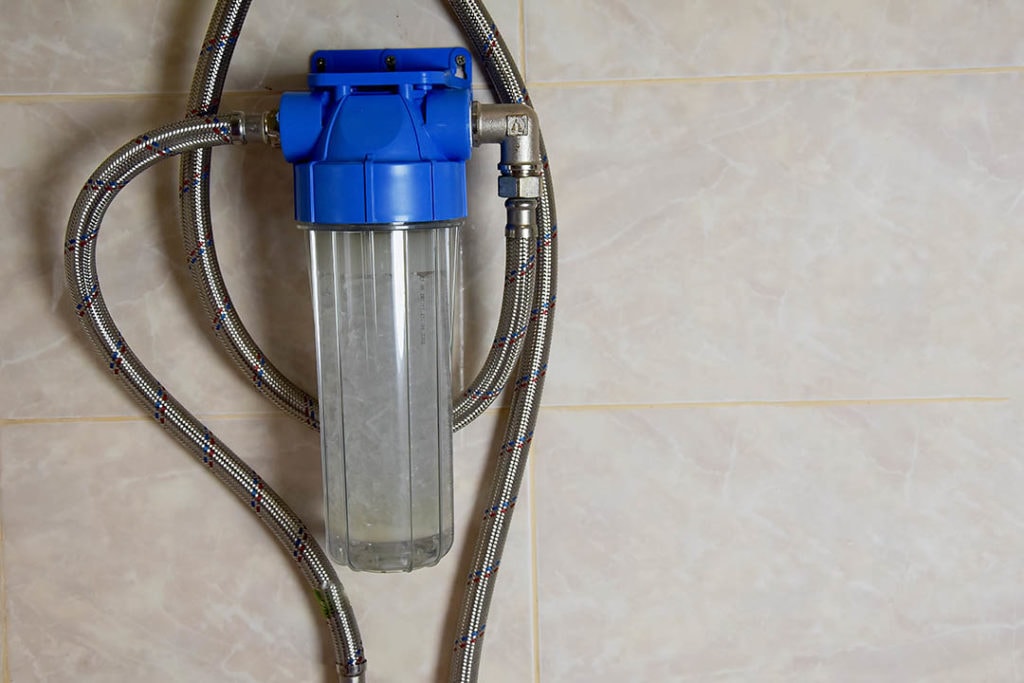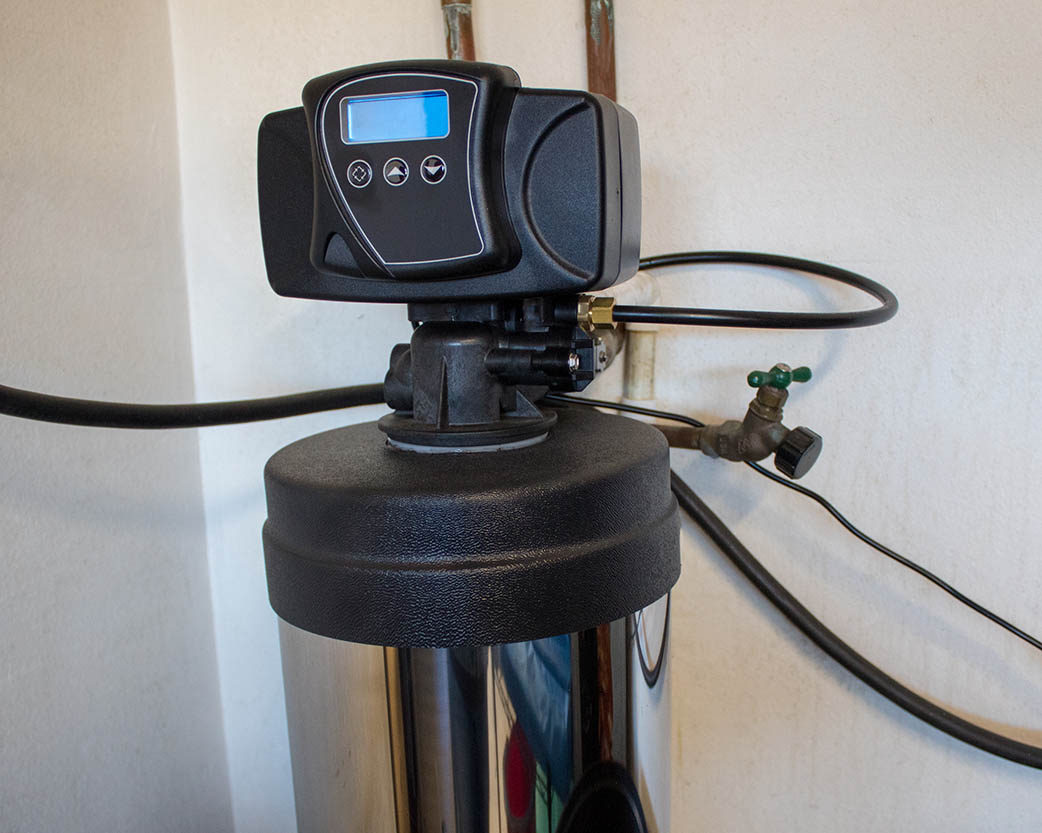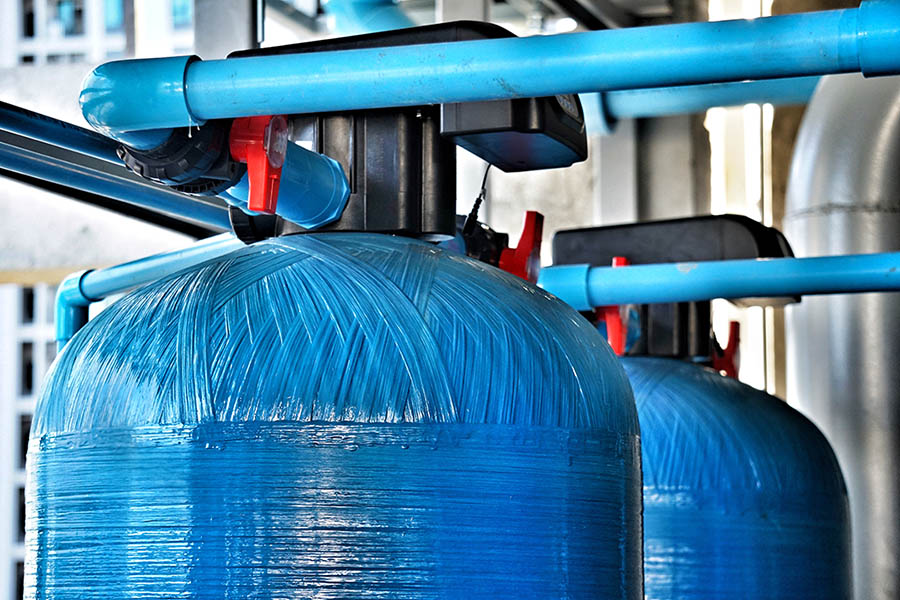Renting vs Buying a Water Softener: What’s Best? (Monthly Cost Analysis)
-
Pete Ortiz
- Last updated:

Installing a water softener brings tons of benefits to your households. Water softeners are much easier on your household appliances that use water, like your kitchen sink, toilet, dishwasher, and washing machine, to name a few.
If you’ve ever experienced clogs in your shower head or water stains in your toilet, you most likely have water that’s too hard. Hard water has too many minerals in it. Some water softeners filter out the minerals with salt, and others do it without salt.
Taking one look at water softener prices might make you fall over: they are quite the investment, especially getting one that’s of decent quality. Luckily, there are options to rent water softeners, but in general, it’s best to just buy one. We are going to look into all the ins and outs of renting and buying water softeners, so you can make the right choice for your household.
Overview of Renting a Water Softener
How it Works
There are specific companies that rent out water softeners. Probably the most popular place to do this is through Culligan, but often your local water treatment dealer will have an option to rent, too. You can go to their physical stores to talk with a dealer or check out the online options.
Before you decide to rent, if you do not own the property you are living in, you will need to check with your landlord. It could be difficult to convince your landlord to commit as it will likely change the plumbing system of the house. However, you can talk up the benefits of soft water to lengthen the life of your landlord’s appliances, and he or she may comply.

When to Rent a Water Softener
Renting a water softener is best for people who are renting their homes or who don’t plan to be living in their homes for the majority of the year. Renting is also a good option if you want the benefits of soft water without the large upfront cost of buying your own unit.
Another time to rent a water softener is when you are unsure whether you want one or not, or if you are undecided on which kind to get. If you don’t mind the invasive process of installing and uninstalling a water softener unit in your plumbing system.
Monthly Cost of Renting a Water Softener
Renting a water softener will cost you about $20 to $50 every month, which equals $240 to $600 a year, depending on who you rent from and what kind of unit you decide to rent. Keep in mind that this may or may not cover installation costs and repair costs. Make sure you ask what other fees there are for these services, if any.
- Little commitment necessary
- Great for short-term living situations
- Maintenance and repairs are usually covered
- Likely not the newest technology
- The installed water softener is probably used
- More money in the long run
- Limited selection
Overview of Buying a Water Softener
How it Works
Buying a water softener is easily done at any local water treatment dealer (like Culligan), or a big box store like Home Depot or Lowes. Companies that sell water softeners also offer deals to install them when you purchase. Most water softeners bought new, come with a generous warranty, too.

When to Buy a Water Softener
If you’re into long-term investments, buying a water softener is far better than renting one. A brand new, quality water softener can cost as little as $500 to up to $2,000. Spending about $2,500 is about right for the highest quality water softener for one household; you’re likely paying too much if you pay more than that. A new water softener should last at least 10 years, with the longest time being up to 20 years. This makes it way more beneficial to buy a new water softener compared to renting one.
It’s also important to buy a water softener when you have a specific brand or unit in mind. If you rent, you may not have much of a choice in which unit you get.
Related Read: Water Softener Costs: System & Installation Prices
Monthly Cost of Buying a Water Softener
Buying a new water softener has more cost at first, but buying the newest, most efficient technology could save you on water and electric bills for the months to come. Some units are even wifi-enabled to let you know when the salt is getting low or reminders to get the unit serviced.
- New unit, possibly with a warranty
- A better deal in the long run
- More units and brands to choose from
- Higher initial cost
Other Factors to Consider
Water softeners come in different varieties. There are salt-based or salt-free units. The salt-based ones are usually cheaper than the salt-free ones, which could affect the monthly and overall costs of renting or buying a water softener. Also, the size of the unit you need will make different cost outcomes.

Are Water Softeners Worth the Cost?
Water softeners are worth the cost if you own your home and the appliances in your home. This is because they save you money by maintaining your appliances, as water that’s too hard can damage the things that use water in your home over time.
Some people think that they are not worth it due to the high initial costs and the cost it takes to run it and provide salt. In fact, water softeners save you in energy costs and most families use less than 10 bags of salt in a year with their water softener. Some even save on water bills because people with soft water are using less water to wash things.
Related Read: 5 Best Water Softeners for Well Water – Reviews & Top Picks
Some States Have Banned Water Softeners
Did you know that water softeners are not available for installation in all states? When the water softener’s system regenerates, the salty water that was in the softener gets dumped into the home’s sewage system. Water treatment plants currently don’t have a way to recycle this kind of water, so it goes to waste.
This is the reason some states ban the use of water softeners. Look up if your state allows the use of them or not before purchase, as you may be hit with fines if you use one in your home.
- While renting a home
- Unsure of which type you want
- Finances are tight
- You don’t mind having a used unit
- You don’t mind having any brand or type
- While owning your own home
- It’s not a financial burden
- To save money in the long run
- Picking out a specific type and brand
- Want a brand-new unit
In Conclusion
Whether you rent or buy, installing a water softener is great for extending the life of your appliances, saving on energy bills, and saving money on things like soap, detergent, and shampoo (since soft water helps get a better lather). In this way, you are definitely saving money. However, buying is almost always better than renting, if your life situation and finances allow for it.
See Also:
- Water Softener Costs 2022: System & Installation Prices
- Renting Vs Buying A Water Softener: What’s Best? (Monthly Cost Analysis)
Featured Image Credit: atewi, Shutterstock
Contents





